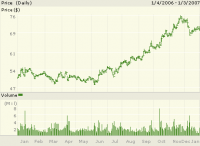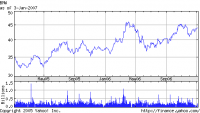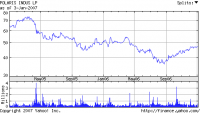I am very familiar with the DCA argument. However, the case in point here is Vrai re-aligning her nest egg. That means she will be taking the bulk of her savings and putting it somewhere. In this case, loading it all into an aggressive based on mutual fund "averaging" would be the wrong route to take. She can not dollar cost average out that large upfront pot of money if it is going to be the bulk of her savings. Therefore, she should diversify it for good return and minimize any market turns that could jeopardize that pot of funds. True aggressive funds are typically weighted in one or two industries making them highly susceptable to market turns and taking large losses if a particular industry is hit (i.e. tech buzz of the 90s). If you want to do actually do the research, you will find that good, conservative growth and income funds typically outperform all those aggressive fund categories.
I am all for mutual funds. In fact, I think too many people try to play in the stock market way too early. When I worked as an advisor, I used $250k as a standard benchmark for when you should start to move away from mutuals. Once you had a 1/4 million in mutuals, you could start playing in other areas (such as stocks, bonds, etc...). I had some people who didn't follow that rule and they either were real happy or real sad, and hardly ever in between. That is because when you buy even a basket of recommended stocks, you should count on 3 being average to the slightly up or down side, 1 tanking, and 1 being your big prize. If you don't have a good chunk of change, it is hard to diversify/balance appropriately between 5-10 stocks. Then you are just gambling.



 I'm sorry, FT.
I'm sorry, FT.






